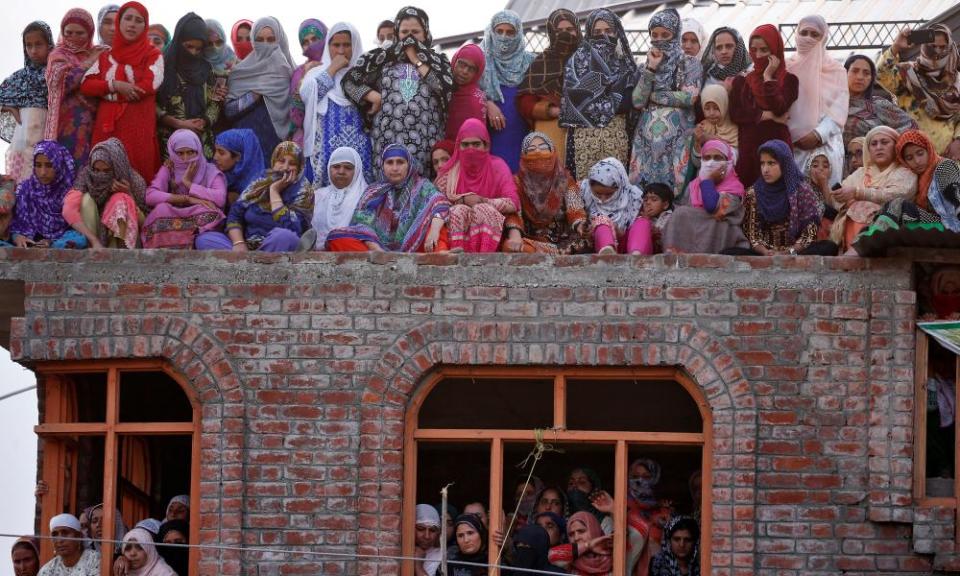Kashmir on edge after local government falls amid militant clashes

The disputed Himalayan region of Kashmir is on edge after clashes between militants and security forces, and the collapse of the local government over disagreements that include how to tackle the resurgent fighting in the state.
A month-long unilateral ceasefire declared by the Indian government for Ramadan expired a week ago. Recent events, including the first official acknowledgement that Islamic State-inspired fighters may be operating in Kashmir, have raised fears of another violent summer ahead for the troubled region.
In the latest incident on Friday, security forces fought a nearly seven-hour gun battle with militants in the southern district of Anantnag. Four rebels, a police officer and a civilian were killed in the shooting, police said. It is the third clash between Indian authorities and militants since the end of Ramadan, during which security forces had suspended their operations as part of a new push to initiate dialogue with separatists, whose goals include independence or merger with Pakistan.
Police chief Shesh Paul Vaid identified the slain fighters as members of a local unit that claims to be affiliated with Isis. This is the first time the police have acknowledged the presence of Isis-inspired or affiliated fighters in Kashmir.
The Isis-affiliated “news service” Amaq issued a statement on Friday claiming the fighters were members of its group, but analysts have raised doubts about what contact, if any, the terrorist group has with the militant group, which calls itself Islamic State Jammu and Kashmir (ISJK).
The restarting of security operations after Ramadan and the decision of authorities to acknowledge the existence of ISJK come during a period of political instability in Kashmir after the collapse of the state government this week.
The Hindu nationalist Bharatiya Janata party (BJP), which is part of the national government, announced on Tuesday that it was pulling out of a governing coalition with the local Jammu and Kashmir Peoples Democratic party, known by the initials PDP.
Ram Madhav, the BJP official who brokered the alliance in 2015, said it was no longer tenable “keeping in mind the largest interest of India’s integrity and to bring the deteriorating situation in the state under control”.
The intensity of fighting in Kashmir has steadily grown in the past three years with the emergence of a new generation of anti-India militants.
The BJP has traditionally favoured taking a hard line against Kashmiri separatism, a stance that put pressure on its alliance with the PDP, which is considered more sympathetic to the cause.
How to tackle the militancy was thought to be a deep fault line in the relationship. “We have always said muscular [security] policy will not work in Jammu and Kashmir,” the PDP leader, Mehbooba Mufti, said on Tuesday after the collapse of the government. “We cannot treat Jammu and Kashmir as an enemy territory.”
Additional checkpoints have sprung up in restive parts of Kashmir since the collapse of the government. Control of the state has temporarily passed to its governor, NN Vohra, until a new government can be formed.
Vaid said he expected security operations would “intensify” in coming days and that the job of police would become “much easier” under Vohra’s rule.

Kashmir, a former princely state (semi-sovereign territory) under the Raj, has been divided since 1947 between sections controlled by Pakistan, India and China. Pakistan and India both claim the entire region as their own.
A United Nations resolution issued in 1948 demands that India allow Kashmiris a plebiscite to decide whether they remain part of the Indian union or become independent, but no such vote has ever been organised by Delhi.
An armed rebellion broke out in 1989 against Indian rule and has raged at varying levels of intensity in the years since. The fighting is thought to have killed at least 40,000 people in the past three decades, according to Indian government estimates.

 Yahoo News
Yahoo News 
